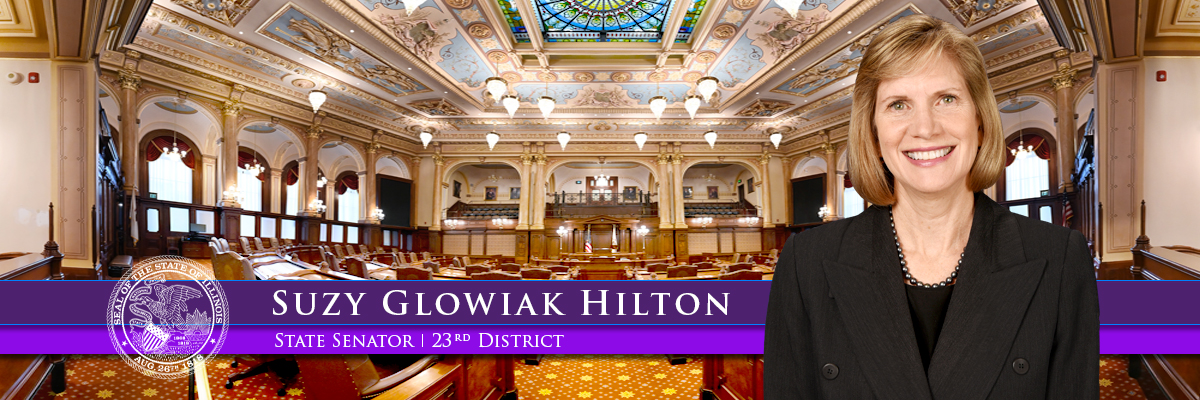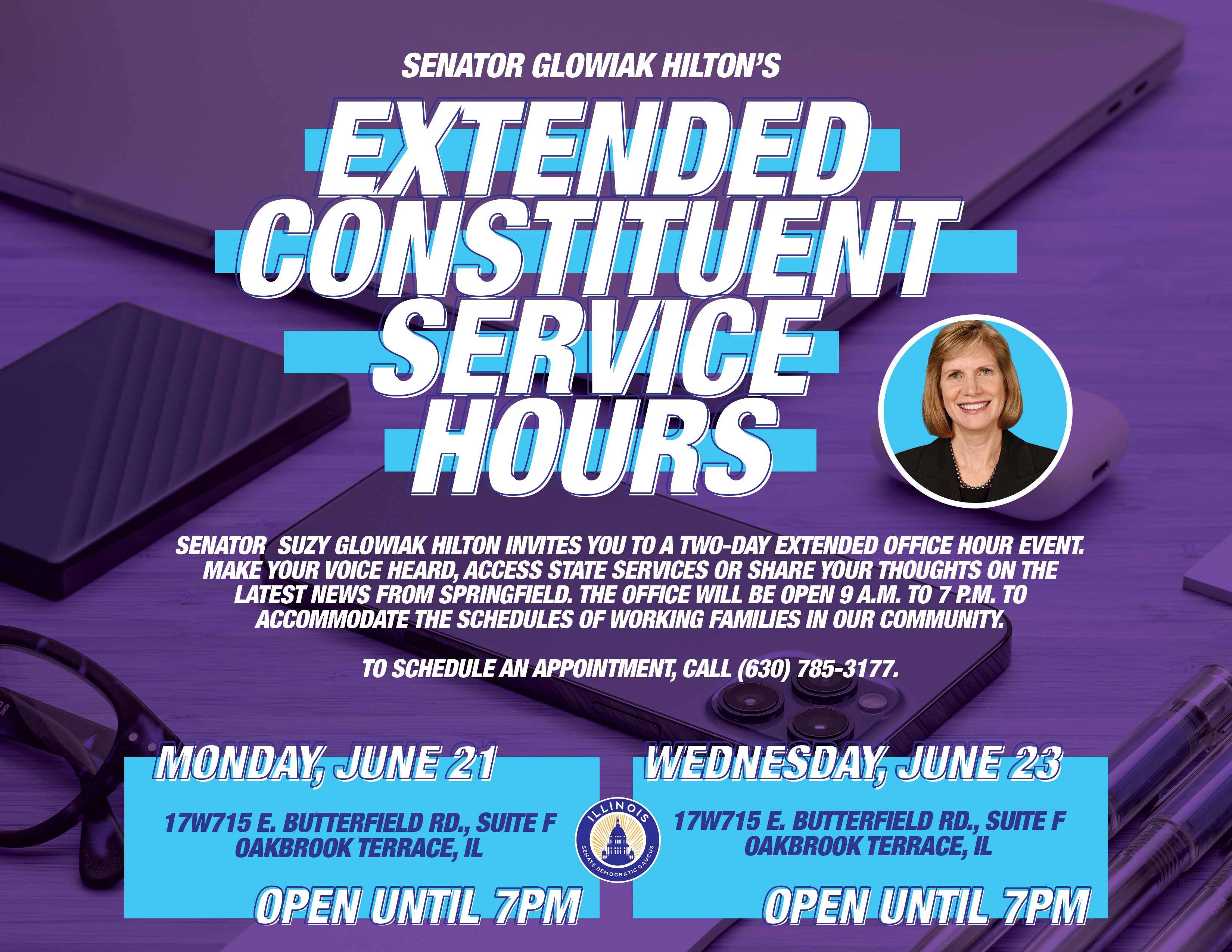Glowiak Hilton urges governor to sign measure supporting local businesses
- Category: Press Releases
SPR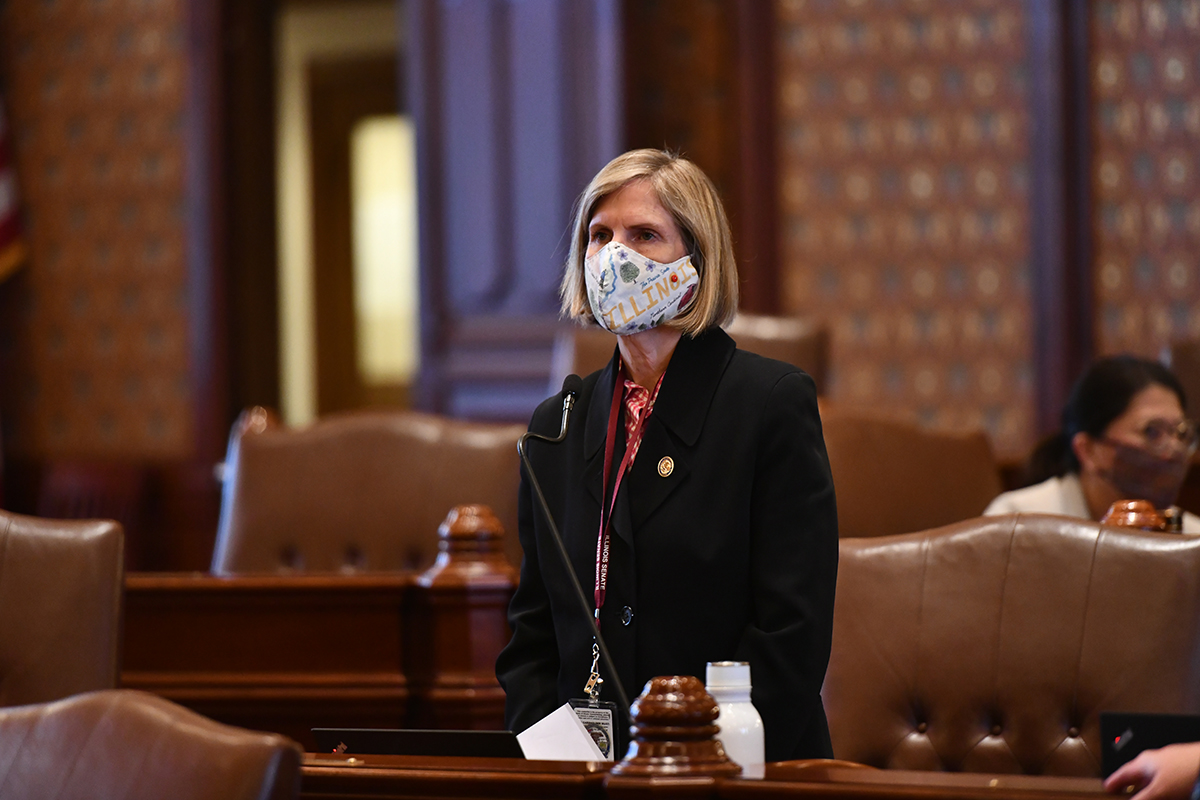
“Our small businesses need our help easing the financial burdens the last year has put on them,” said Glowiak Hilton, who sponsored the bill in the Senate. “Local governments should be able to make the decision to waive certain fees to allow these businesses to get back to a place of economic security.”
If signed, House Bill 2454 would create an option for local counties and municipalities to waive licensing, permitting, or registration fees for local businesses and services for businesses who demonstrate financial need due to the pandemic.
“Illinois’ hospitality sector alone saw a loss of 40% of jobs during the pandemic,” Glowiak Hilton said. “I urge the governor to sign this measure as soon as possible in order to provide the support our local businesses need to get back to where they were.”
HB 2454 is currently awaiting further action by the governor.
Glowiak Hilton highlights Illinois’ bond status upgrade
- Category: Uncategorised
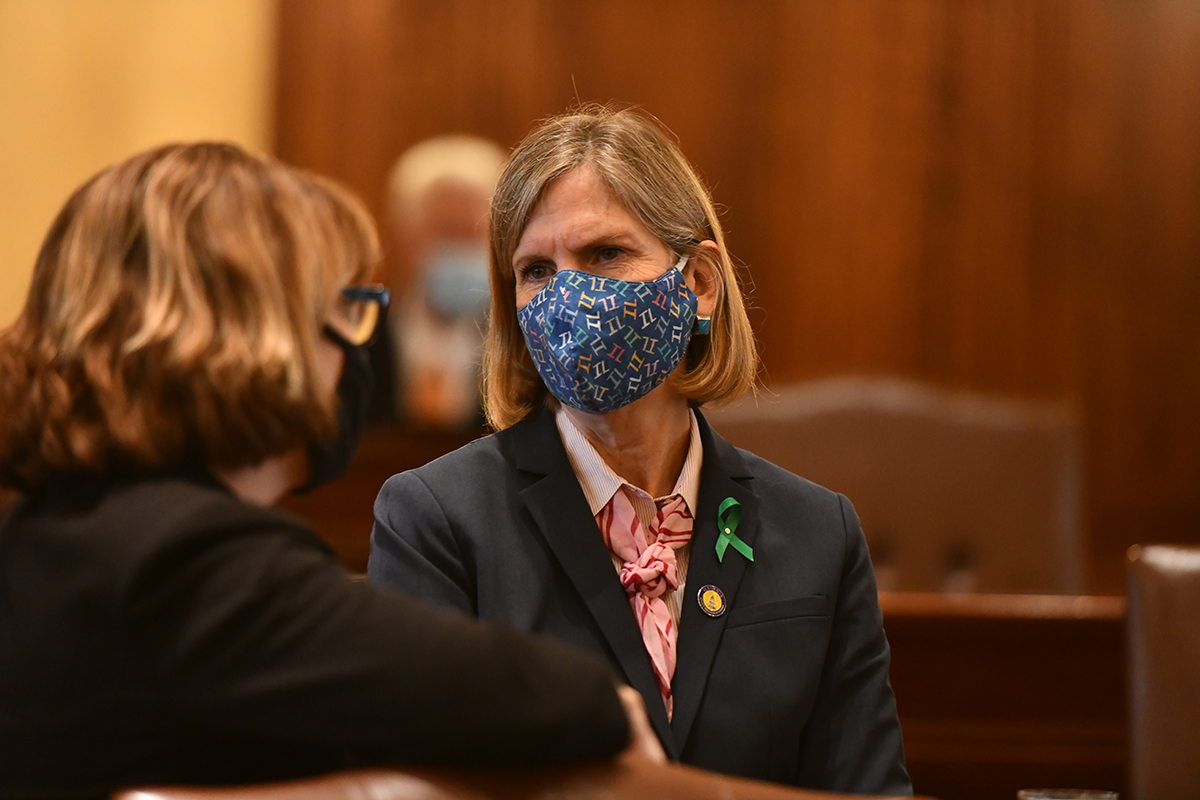 OAKBROOK TERRACE – Fitch Ratings has revised its outlook on Illinois’ General Obligation bonds from negative to positive, and State Senator Suzy Glowiak Hilton (D-Western Springs) applauds the upgrade as a direct result of responsible spending.
OAKBROOK TERRACE – Fitch Ratings has revised its outlook on Illinois’ General Obligation bonds from negative to positive, and State Senator Suzy Glowiak Hilton (D-Western Springs) applauds the upgrade as a direct result of responsible spending.- “Recent fiscal results and the enacted fiscal 2022 budget suggest further improvements in operating performance and structural balance in the near and medium-term that could support a return to the pre-pandemic rating or higher."
- “Recent improvements including reduction in accounts payable and enacting plans for early retirement of federal pandemic loans, signal improvement in budget management.”
- “Broadly, the state reports a $1 billion reduction in total general fund spending for fiscal 2022 ($42.3 billion) versus the current services estimate provided in November 2020. General fund base operating spending remains flat in the fiscal 2022 enacted budget versus fiscal 2021 at $30.8 billion. Funding for K-12 and higher education is up 3%, including a $350 million increase for K-12.”
Glowiak Hilton highlights Elmhurst bike path project
- Category: Press Releases
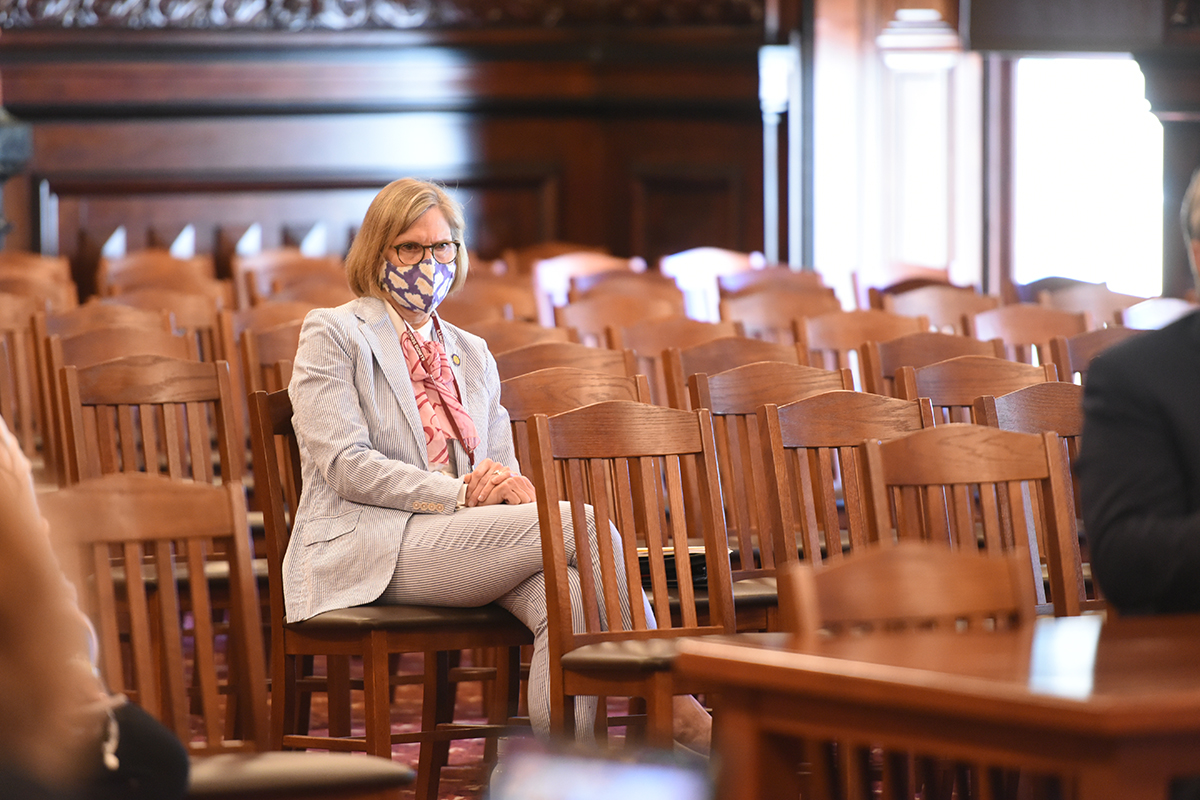
“Bike paths provide a safe public space for residents, families and visitors to be physically active and enjoy the outdoors,” Glowiak Hilton said. “This major investment will allow residents to enjoy even more opportunities for safe transportation and recreation, as well as attract visitors to our area.”
The notable project in the 24th District includes $198,000 to build a pedestrian overpass above Route 83 in Elmhurst.
Rebuild Illinois is awarding $105.7 million to 99 projects statewide, including recreational paths and trails, through the Illinois Transportation Enhancement Program. A complete list can be found on IDOT’s website.
More Articles …
Page 38 of 68
